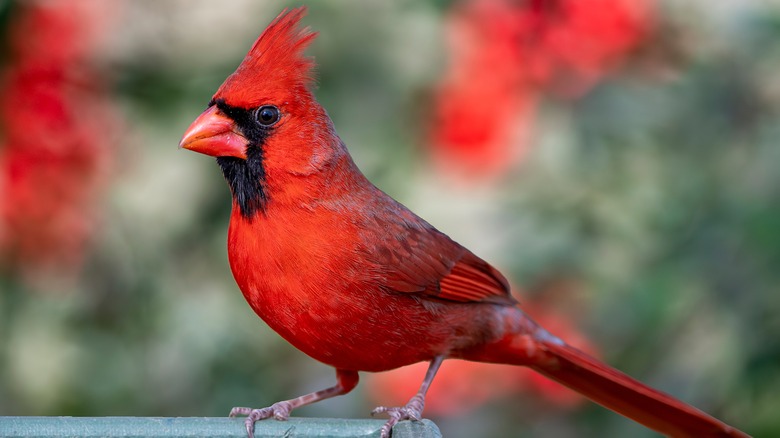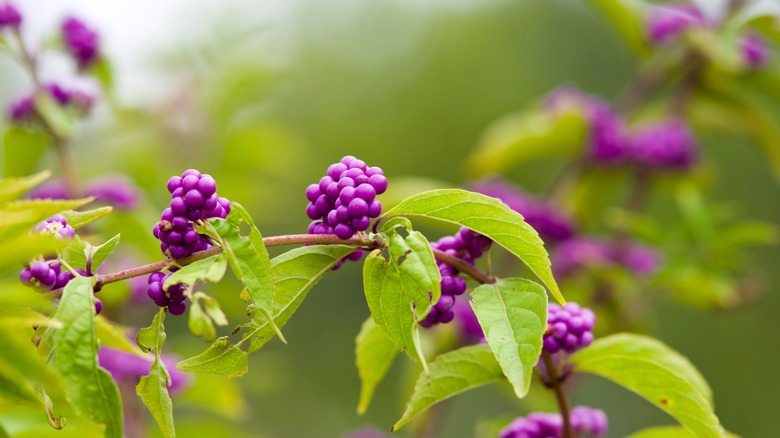Cardinals Will Flock To Your Yard For The Berries On This Beautiful Bush
While most of us love backyard birds, there are, to be frank, downsides that'll make you rethink putting a bird feeder in your yard. Fortunately, there are other more natural, less messy, and (mostly) pest-proof strategies you can employ if you want to attract birds to your garden. One such option is to fill your yard with bird-friendly plants — think red salvia sage for hummingbirds and, for cardinals and other berry eaters like robins and mockingbirds, the American native beautyberry (Callicarpa americana).
The beautyberry is a tall shrub — growing potentially up to 9 feet — in the verbena family. As both of the plant's names imply (Callicarpa means beautiful fruit), the beautyberry's most distinctive feature is the clusters of purple berries that fill its stems in late summer and throughout the fall. The berry bundles remain even after this deciduous tree loses its leaves in the winter. Many native birds and some small mammals rely on berries for food in leaner times, including our bird of discussion: the Northern cardinal.
Where to get a beautyberry
You can buy mature beautyberry shrubs from most big box hardware stores and nurseries specializing in native plants. You can get a beautyberry bush (Pearl Glam varietal) in a 1-gallon container for $29.67 from Home Depot. Growing Wild Nursery in North Carolina has a container shrub for $18, as does Ty Ty Plant Nursery, selling a 1-gallon container shrub for $21.75 and a 3-gallon for $43.75. You can also support a good cause by ordering your beautyberry from the Arbor Day Foundation — a bare root bush goes for just $12.99 for members.
Once you get your shrub home, plant it in a shady to full sun spot in your garden with fertile, well-drained soil. Beautyberries are non-toxic, so you don't need to worry about keeping them out of reach of pets or children. If you're on a budget and have a lot of patience, you can try growing the plant from seed. A 5-square-foot packet from Native American Seed sells for $3.29, or pay just $3.00 a packet at the North Carolina Botanical Garden online store. Beautyberry shrubs are among the best native plants to grow if you live in the southeast. Since they grow wild here, you can also collect the seeds from the fully ripened fruit. Expect germination one to three months after sowing.

